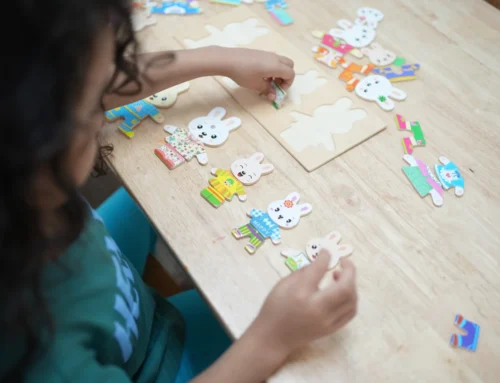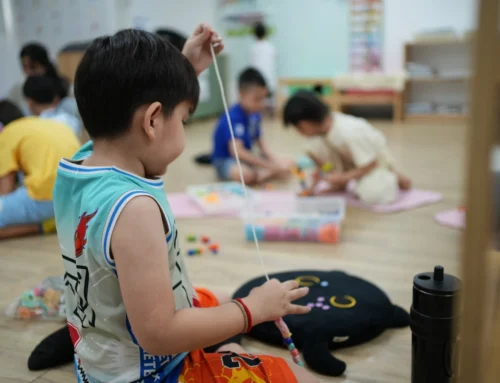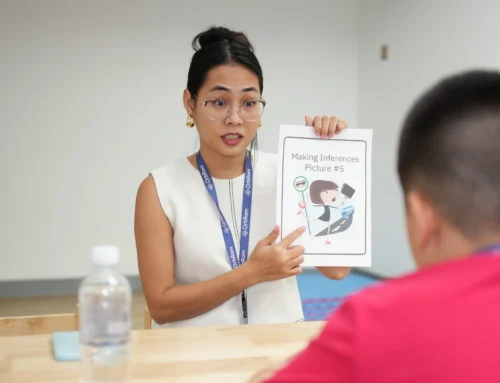Play isn’t a “break” from learning—it is learning. In early education, Learning Through Play builds the brain’s wiring for attention, language, problem-solving, and social skills. When children stack blocks, pretend to be shopkeepers, or scoop sand, they’re practicing planning, sequencing, turn-taking, and fine motor control—skills that directly support school readiness and life. At OrbRom Center, we use play-based methods in our preschool and therapy programs because they’re motivating, inclusive, and backed by child development science.
How Learning Through Play Builds Core Skills
Open-ended play strengthens executive functions like working memory and flexible thinking. For example, sorting toys by size or color reinforces early math and categorization. Hands-on tasks also grow fine motor skills needed for writing and self-care—see our guides on scissor skills and fine motor play. Sensory-rich activities such as playdough, sand, and water calm the nervous system and boost focus; explore sensory play and why sensory rooms help many children regulate emotions.
Language, Social Skills, and Confidence—Through Play
Pretend play sparks vocabulary, storytelling, and perspective-taking. When a child says, “I’m the chef; you’re the customer,” they practice conversation rules, sequencing, and empathy. Structured games also teach turn-taking and self-control—key foundations for classroom success. For children with communication differences, visual supports, sign prompts, and playful routines can accelerate progress (see communication & language and sentence strips for practical ideas at home).
Why Families Choose Play-Based Programs
Children learn best when they feel safe, engaged, and successful. Learning Through Play leverages curiosity—so kids willingly repeat practice that wires skills more deeply. It’s also adaptable: the same activity can be scaled up or down for different abilities, which makes mixed-ability classrooms more inclusive and supportive for every learner.
Where OrbRom Center Fits In
-
Preschool Programs: Our play-based preschool program blends hands-on learning with small-group instruction to build early literacy, numeracy, social communication, and independence.
-
Occupational Therapy (OT): When a child needs extra help with regulation, motor skills, or daily routines, Occupational Therapy uses play to target goals like pencil grasp, bilateral coordination, and sensory processing.
-
Assessments: If you’re unsure where to start, our assessments clarify strengths and needs so your child’s plan is precise and effective.
Getting Started at Home
Keep it simple and consistent. Rotate a small set of toys, add visual cues, and aim for 10–15 minutes of focused, joyful play daily. Try color sorting, obstacle courses, pretend shops, or kitchen-tool play for fine motor practice. For deeper dives, parents love these quick reads: Power of Play and Early Intervention matters.
Bottom line: Learning Through Play isn’t “extra”—it’s the most natural, effective path to early development. If you want a structured, evidence-based approach that still feels like fun, OrbRom Center is ready to help.
We are the only Preschool specialized on children with special needs in PhnomPenh.
- Internationally qualified teachers
- Cambodia’s largest sensory room
- Outdoor swimming pool
- Covered outdoor playground
📞 Phone: 077.455.993
Telegram Link: https://t.me/OrbRom





